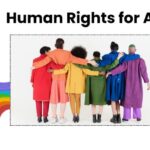Please click here for a PDF version of this letter.
Related resources and background to assist you
Sample letter template for your reference (Word document)
Proposal from the Being Good Relations Network to Northern Spirit Regional Council (as passed)
Links to further background on the social studies curriculum
Background to all United Church of Canada-run residential schools, by province and territory
Truth and Reconciliation Commission Calls to Action
To: Education Minister Hon. Adriana LaGrange
From: Northern Spirit Regional Council of The United Church of Canada
Dear Minister LaGrange,
As Northern Spirit Regional Council of The United Church of Canada, we are writing with great concern in regards to the draft K-6 Social Studies curriculum. While we share many deep concerns about it that many other educators and Indigenous organizations have outlined in a clear and comprehensive manner to you already, in this letter we will focus on:
– The inclusion of historical and current Indigenous perspectives in all grades and,
– The province’s commitment to fully respond to the Truth and Reconciliation Commission’s Calls to Action re Education for Reconciliation #62, #63, and #64.
We also write to you at a time when the church and country are in mourning for the 215 children found at the former Kamloops Indian Residential School. More than ever, we emphasize the need for a continuous commitment to learning about and from the residential school system, and its role in colonization efforts that continue to this day.
Northern Spirit Regional Council is a governing body of the United Church of Canada which includes 97 communities of faith in northern Alberta, and two Indigenous communities of faith with whom we share in ministry. The United Church of Canada, as a party to the Indian Residential Schools Settlement Agreement, and thus to the Truth and Reconciliation Commission (TRC), is committed to the implementation of the Calls to Action. We have made apologies and been active in educating ourselves about our role in colonization and the residential school system, which included three schools in Alberta. We are committed to becoming an intercultural church and an anti-racist denomination. We want no less for our children in the Alberta education system.
We were so encouraged in 2014 when the Alberta government made a promise to include
1) mandatory content on residential schools and treaties for all Alberta students;
2) a Kindergarten to Grade 12 curriculum development standard; and
3) support for professional learning opportunities for teachers.
In June 2016, the Joint Commitment to Action was signed by representatives of the Government of Alberta, the National Centre for Truth and Reconciliation and five Alberta education stakeholder organizations as part of an enduring commitment to respond to the Calls to Action from the TRC. Call #62 reads: “We call upon the federal, provincial, and territorial governments in consultation and collaboration with survivors, Aboriginal people, and educators to i) Make age appropriate curriculum on residential schools, Treaties, and Aboriginal peoples’ historical and contemporary contributions to Canada a mandatory education requirement for Kindergarten to Grade Twelve students.”
We believe that great work was being done to live up to that commitment, and we were already seeing positive changes in the understanding of our shared history, our ongoing relationships, and the well-being of Indigenous students in many of our schools and communities. This could only lead to a better Alberta and Canada, and demonstrate the ways of reconciliation.
With the appointment of the curriculum review panel and the March release of the draft K-6 curriculum, it seems like your Department and government have reversed course, and even exhibit contempt for ways of decolonizing the educational content and system. The Honourable Justice Murray Sinclair, Chair of the TRC, points to education as the key to reconciliation, stating, “Education got us into this mess and education will get us out of it”. Unfortunately, it seems a further mess is in development.
We take particular note of the following fundamental problems in the Social Studies draft curriculum:
- Indigenous peoples’ contributions are taught only in an historical context. There is no mention of Métis, Inuit or First Nations in any contemporary context.
- Treaties are introduced in grade 4 and Indian Residential schools are taught in grade 5, with some reference to them in grade 6. This is too little too late.
- Strong Eurocentric, American and Christian-centric colonial attitudes, including sympathy for white supremacy (Examples include: in Grade 6, the assumption is that the majority of the students are Christian who will “study other faith traditions so that unfamiliar practices become respected and understood in a pluralistic society.” Indigenous traditions are not included in the investigation of ethnic and religious diversity. Support for the KKK is explored, rather than opposition.)
- Parts of the curriculum fail to reference specific First Nations, but instead usually lump Métis, Inuit and First Nations all together.
- The Métis resistance is inappropriately called an uprising. The tragic battle involving Métis at Duck Lake, Saskatchewan is minimized into a map skills outcome. (Grade 4)
As Justice Sinclair said, teaching such distorted views will “perpetuate a ‘wall of mythology’ about Indigenous peoples and their history that will be next to impossible to undo” and is an “act of discrimination.” This draft Social Studies curriculum must not serve as a basis of education in this province.
Schools have such an important role to play in reconciliation and becoming an anti-racist society. It is through age appropriate curriculum that students are given the tools and knowledge to understand our collective history and current identity. This is why the United Church has itself developed a wide range of curricula and content for its own membership, including children and youth. Such understanding is the foundation of equitable and respectful relationships.
We beg you to:
- Reject this draft K-6 curriculum and return to what was already in progress when you became Education Minister, and was being developed in a non-partisan way.
2. Honour the Joint Commitment to Action, and Education for Reconciliation (TRC Calls to Action).
3. Listen in good faith to current educational expertise, and to First Nations, Métis, and Inuit peoples; and involve them in the development of all aspects of the curriculum in true collaboration.
Indigenous advocates and knowledge keepers, and their non-Indigenous allies, struggled to change the curriculum even before the TRC. The changes made were the result of years of consultation, expertise and effort. We eagerly await your decision to take the right and honourable action to withdraw the entire March 2021-released draft K-6 Social Studies curriculum, and we look forward to receiving your response to this letter.
With prayers for all Creator’s children and reconciliation,
Rev Gord Waldie, chairperson
Rev Shannon McCarthy, Executive Minister, on behalf of the Executive, Northern Spirit Regional Council of the United Church of Canada
Cc:
Hon. Jason Kenney, Premier
307 Legislature Building
10800 – 97 Avenue
Edmonton, AB, T5K 2B6
E-mail: premier@gov.ab.ca
NDP Education Critic Hon. Sarah Hoffman
5th fl Federal Building
9820 – 107 Street
Edmonton, AB T5K 1E7
Email: Edmonton.Glenora@assembly.ab.ca
Nicole Callihoo, Asst Deputy Minister, First Nations, Métis, & Inuit Education Directorate
7th fl Commerce Place
10155 – 102 Street, Edmonton
E-mail: nicole.callihoo@gov.ab.ca





